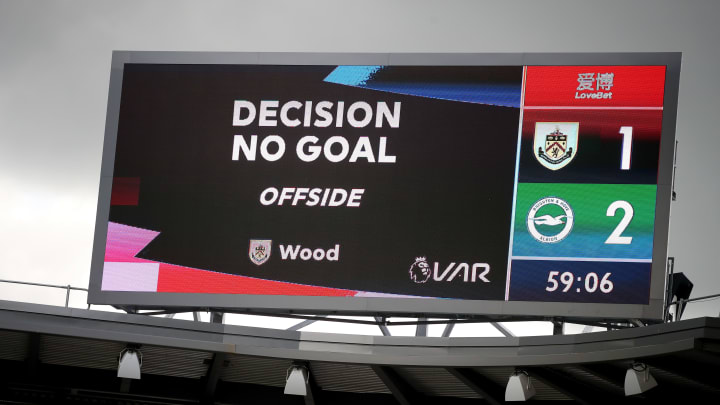VAR Roundup: Changes Made for 2020/21 Premier League Season

Oh VAR, that contentious, infuriating technological advance that was the source of so much frustration and anguish last season.
Whatever we think of it, it's here to stay and changes are being made ahead of the new 2020/21 Premier League season to ensure it runs smoother than last time. We can hope.
Prior to everything kicking off on 12th September, here is a roundup of the alterations we will see in VAR for next season, courtesy of ESPN.
Regular Use of Pitchside Monitors
One of the blood-boiling aspects of last season's implementation of VAR was the match referee not utilising the pitchside monitors. When certain decisions were overturned by the folks in Stockley Park, that level of accountability for the man in the middle was missing.
Now, being encouraged to check decisions they've made on-field without resorting to VAR's interpretation will, hopefully, prevent blatantly missed calls such as the baffling red card decision missed with Giovani Lo Celso's tackle on Cesar Azpilicueta at Stamford Bridge.
Use of the monitors will be left solely for potential penalties and red cards, not for decisions such as offsides. As ever, it will fall on VAR to advise the referee to check calls they've made prior to any consultation with the monitors.
Offsides
Despite rumours suggesting a 'margin of error' would be implemented to avoid further 'armpit offsides', these claims have been waved away in favour of the current system.
That means we will still be left to wait and see whether a player's big toe is beyond the last line of defence. We will potentially see less reviews on screen, though.
Whether a review is shown on television will rest on the TV broadcaster's shoulders, so if a decision isn't shown it doesn't mean it won't have been reviewed.
The choice of lines when such an instance occurs will be altered, as the 'crosshair' line will be swapped for simple green and red variations. Red will indicate the potential offside and green will be the last line of defence.
Being Flagged for Offside
Remember the Jonjo Shelvey incident at Sheffield United? In order for such a bizarre sequence of events to be eradicated, the referees' assistants will instead keep their flags down if there is an immediate goalscoring opportunity, only raising them when the phase of play has ended.
This new approach is aimed to prevent defending teams switching off, as per Bramall Lane, as despite being told to play to the whistle, natural instincts would often come into play.
Meant to avoid added confusion, it does probably mean we'll celebrate a few more goals only to be bitterly disappointed when the flag goes up at the end.
Penalty Encroachment
VAR did not punish goalkeepers who encroached off their lines for penalties last season, with the decision instead falling on the referee to make.
This season, VAR will intervene if a goalkeeper does not have one part of one foot on the line when a penalty is taken. One time is a warning, while if it happens again a yellow card will be brandished.
An intervention will happen only if a penalty is saved, not if the taker strikes the post or hits their penalty wide.
Handball
Perhaps above all, the handball rules were the cause of major annoyance last season. While not VAR's fault - they just enforce the laws - they have been altered and will be followed by the review system.
Now, handball officially starts below the 't-shirt line'. This isn't where the literal line of the t-shirt ends, but is in fact defined as 'the top of the shoulder area down to the where it meets the armpit'. While there will still be interpretation issues that are sure to incense many, this does mean less goals will be chalked off for handball. A fair few of those instances happened last season.
More handball rules are being made, albeit nothing to do with VAR. Attacking handball - goals scored during a phase of play where the ball touched the arm of the attacking team - has been altered to dismiss goals only if are scored in the immediate aftermath of a handball.